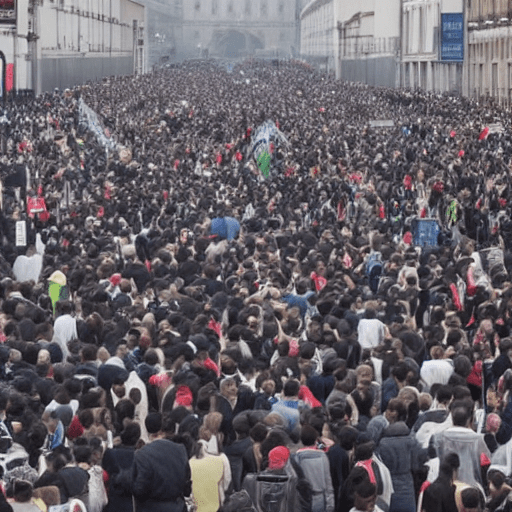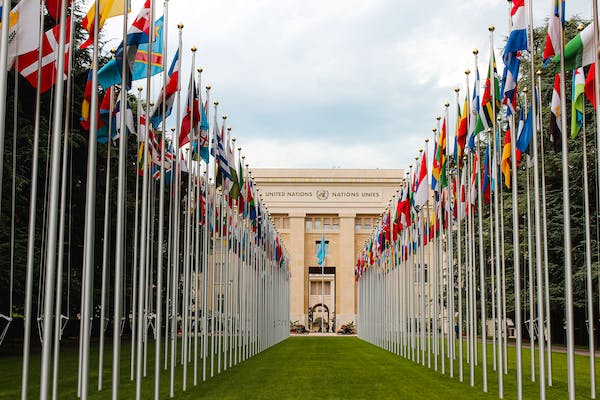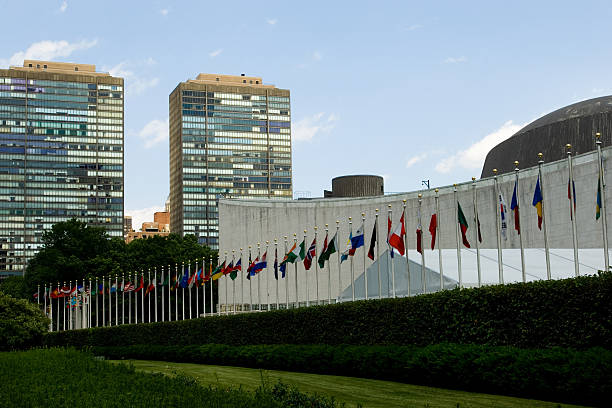Introduction

Characteristics of Migration Definition
Migration definition; Human migration is the movement of individuals from one place to another, either within a country or across international borders. People migrate for various reasons, including seeking better economic opportunities, escaping persecution or violence, reuniting with family members, or seeking better education and healthcare. However, migration can be a complex and challenging experience, as it involves uprooting one’s life and adapting to a new social, cultural, and economic environment.
Basic Needs
International assistance can play a pivotal role in supporting the humanitarian needs of migrants, as well as in addressing the root causes of migration. For example, humanitarian aid can help provide refugees with basic necessities like food, shelter, and medical care, while educational programs can help migrants develop skills that can improve their economic opportunities. Aid can also support the integration of migrants into host communities, by promoting understanding, respect, and tolerance between different cultures.
Lack of Consensus
However, international assistance also faces some significant challenges in supporting the needs of migrants. One critical challenge is the lack of consensus among nations on how to address migration-related issues. Some countries emphasize border security and deterrence, while others focus on ensuring migrants’ rights and providing them with essential support. Therefore, a coordinated and comprehensive approach to addressing migration is essential to ensure that assistance is effective and suitable for meeting migrants’ diverse needs.
Funding Gap
Another critical challenge in providing assistance to migrants is the funding gap. Migration-related emergencies often require significant financial resources, yet international aid is frequently inadequate to meet these needs. Additionally, a significant proportion of aid directed towards migrants is directed towards short-term humanitarian relief; long-term social and economic support is crucial to enable migrant communities to become self-sufficient and economically independent.
Migration definition ensuring that international assistance is evidence-based and data-driven is essential to ensure that it meets the needs of migrants adequately. Collecting data on migration patterns, the reasons for migration, and the needs and aspirations of migrants is essential to understand the complex factors that drive migration and design effective interventions. Additionally, involving migrants in the design and implementation of aid programs can help ensure that these programs reflect their priorities and needs.

Human Migration Definition And African Experience
Human migration is the movement of people from one location to another with a purpose of settling in the new place. This movement can be caused by various factors such as environmental, economic, social or political reasons. Migration has been a part of human history for thousands of years with people moving from one region to another in search of better opportunities. In Africa, migration has been a dominant theme from pre-colonial times to the present day.
Social – Political Factors
African migration patterns have been influenced by social, political and economic factors. For example, political instability in many African countries has led to the forced migration of people in search of safety and better living conditions. Economic factors such as poverty, unemployment and lack of opportunities have also been major contributors to migration in Africa. Many Africans move from rural to urban areas in search of work and better economic prospects.
Environmental Factor
In addition, environmental factors such as drought, famine, and natural disasters have also played a role in human migration in Africa. Climate change is becoming more of a concern and could potentially cause more displacement of people in the future. Along with these factors, colonialism and slave trade also played significant roles in shaping African migration patterns. With the expansion of European powers in Africa, millions of Africans were forced to move to new regions as part of the slave trade.
Economical Reasons
Today, African migration is a global issue, with millions of Africans moving to Europe, the Americas or other African nations in search of better living conditions. The challenges of migration remain, with long and often dangerous journeys, poor living conditions, and discrimination in new regions. However, migration remains an important way for people to improve their lives and access better opportunities. With proper policies and approaches towards migration, it can be managed in a way that benefits both migrants and host communities.
How is Rural Urban Migration in Africa Possible?
Rural-urban migration in Africa is made possible by a variety of factors that contribute to the movement of individuals from rural areas to urban centers. This phenomenon has significant implications for the socioeconomic dynamics of both rural and urban communities in Africa. In this essay, we will explore the reasons behind rural-urban migration in Africa and the impact it has on individuals and societies.
One of the primary drivers of rural-urban migration in Africa is the limited economic opportunities in rural areas. Many rural communities in Africa rely heavily on subsistence agriculture, which often fails to provide a sustainable income for individuals and families. As a result, young people are motivated to seek better economic prospects in urban areas, where they can pursue employment opportunities in various sectors such as manufacturing, services, and commerce.
Moreover, rapid population growth in rural areas places significant pressure on agricultural resources and leads to diminishing returns on land. As the number of people depending on farming for survival increases, the productivity of the land decreases, making it even more challenging for individuals to sustain themselves solely through agriculture. This compels many to migrate to cities, where they hope to find alternative income-generating opportunities.
Another contributing factor to rural-urban migration in Africa is the disparity in access to education and healthcare between rural and urban regions. Many rural areas lack adequate schooling facilities and have limited access to quality healthcare services. This prompts individuals, especially parents seeking better education and healthcare prospects for their children, to move to urban areas where these services are more readily available.
Additionally, the allure of urban lifestyles, including access to modern amenities, improved infrastructure, and a wider range of social and cultural opportunities, also motivates rural residents to migrate to cities. Urban areas provide better access to utilities such as electricity, water supply, and communication networks, enhancing the quality of life and offering a greater sense of convenience.
Furthermore, urban centers tend to attract foreign direct investment, leading to the establishment of industries and businesses that generate employment opportunities. This availability of jobs in urban areas serves as a significant pull factor for rural residents seeking economic empowerment and an escape from poverty. The growth of industries in urban areas creates a demand for labor, providing opportunities for rural migrants to improve their economic circumstances.
However, rural-urban migration in Africa also poses various challenges. Urban centers often struggle to accommodate the influx of migrants, resulting in overcrowding, inadequate housing, and the expansion of slums. Informal settlement areas lacking proper sanitation and access to basic services are common in many African cities. These challenges underscore the need for proper urban planning and infrastructural development to ensure sustainable urban growth.
Moreover, rural-urban migration can lead to a drain of skilled individuals from rural communities, contributing to the brain drain phenomenon. Many individuals who migrate from rural areas possess knowledge and skills that are crucial for agricultural development and sustainable resource management. The loss of such human capital can hinder rural development and exacerbate the existing challenges faced by rural communities.
Rural-urban migration in Africa is driven by a combination of economic, social, and infrastructure-related factors. The limited economic opportunities, lack of access to education and healthcare, and allure of urban lifestyles are some of the primary reasons for this migration. While rural-urban migration can offer improved economic prospects for individuals and contribute to urban development, it also poses challenges such as overcrowding, infrastructure strain, and the brain drain phenomenon. Addressing these challenges requires comprehensive urban planning, investment in rural development, and policies that promote a balanced distribution of resources and opportunities between rural and urban communities.

What Leads To Rural-Urban Migration In Europe and America?
Rural-urban migration, the movement of people from rural areas to urban centers, has been a significant phenomenon in Europe and America for decades. While there are various factors that contribute to this migration, in this essay, we will explore the key drivers behind this trend.
One major factor influencing rural-urban migration is economic opportunities. Many migrants move to cities in search of better job prospects and higher wages. Urban areas tend to offer a wider range of employment options, especially in sectors like manufacturing, technology, and services. These sectors often provide higher-paying jobs and better chances for career advancement compared to the limited opportunities available in rural areas, which are primarily agricultural or traditional industries dependent.
Secondly, urban areas often provide better access to education and healthcare facilities compared to rural communities. Families seeking better education options for their children often move to urban areas, where schools and colleges provide a wider range of programs and resources. Similarly, the availability of modern healthcare infrastructure and specialized medical services in urban areas can be a significant pull factor for those seeking improved healthcare access.
Additionally, urban centers tend to have better infrastructure and public services, which can attract rural dwellers seeking improved living conditions. Access to clean water, sanitation facilities, electricity, and transportation networks are often more reliable in urban areas. Other amenities like parks, cultural centers, and recreational facilities may also contribute to the appeal of urban living, especially for young people.
Social and cultural factors also play a role in rural-urban migration. Urban areas often offer a more diverse and vibrant social environment, with opportunities for cultural and social interactions, networking, and entertainment. The allure of a more cosmopolitan lifestyle can be a significant driver for those seeking new experiences and exposure to different cultures.
Changes in land use patterns and agricultural practices can also contribute to rural-urban migration. The mechanization of agriculture and the shift towards large-scale commercial farming often leads to the consolidation of land and reduces the need for labor. Consequently, rural workers may be forced to seek alternative employment in urban areas, leading to migration.
Furthermore, environmental factors can contribute to rural-urban migration. Climate change-induced events such as floods, droughts, and extreme weather conditions can destroy crops and livelihoods, pushing rural populations towards cities where they perceive more stability and resources to cope with these challenges. Similarly, environmental degradation due to unsustainable land management or pollution can render rural areas less desirable, prompting people to migrate towards urban areas.
Historical and policy factors also influence rural-urban migration. In some cases, rural areas have been marginalized or neglected in terms of infrastructure development, public services, or government investment. Such disparities can create a sense of inequality and frustration among rural populations, pushing them towards urban areas in search of better opportunities and quality of life.
Globalization and the expansion of international trade also play a role in rural-urban migration. As economies become more interconnected, certain regions or industries may flourish while others decline. This can lead to the concentration of economic activities in urban areas, intensifying the pull factors for rural populations looking to participate in the global economy.
Rural-urban migration in Europe and America is driven by a complex interplay of economic, social, cultural, environmental, historical, and policy factors. The pursuit of better job opportunities, improved access to education and healthcare, superior infrastructure and public services, diverse social environments, changes in land use patterns, environmental factors, historical inequalities, and globalization are all key drivers behind the movement from rural areas to urban centers. Understanding these factors is crucial for policymakers to address the challenges and harness the potential of rural-urban migration for balanced regional development.
Conclusion on Migration Definition
In conclusion, migration is an essential aspect of human life, and international assistance can provide vital support to migrants. However, addressing the challenges of migration requires more than just short-term emergency relief. We must work towards coordinated and comprehensive approaches to migration, supporting migrants’ rights while addressing the root causes of migration. Finally, ensuring that assistance is cost-effective and evidence-based is crucial to ensure that it meets migrants’ diverse needs and supports their long-term integration into host communities.


1 thought on “Human Migration Definition And International Assistance”